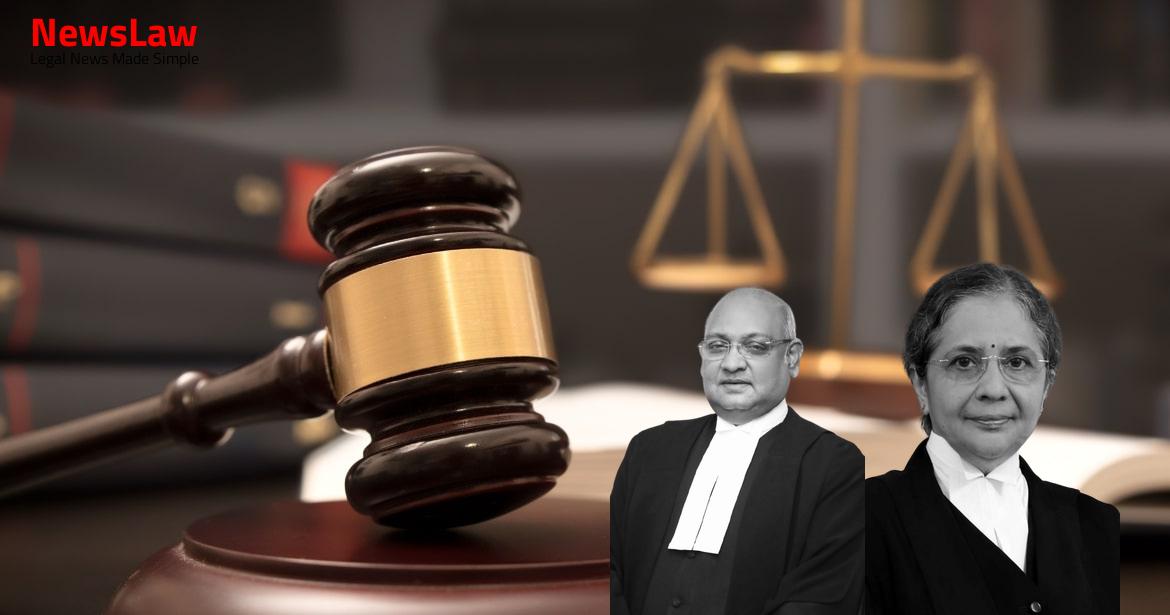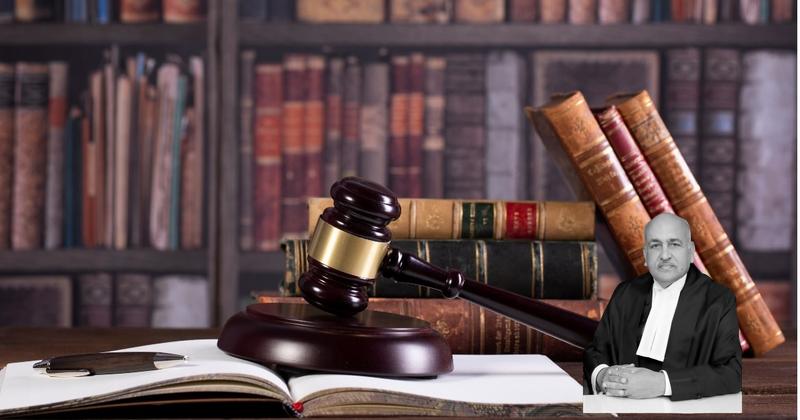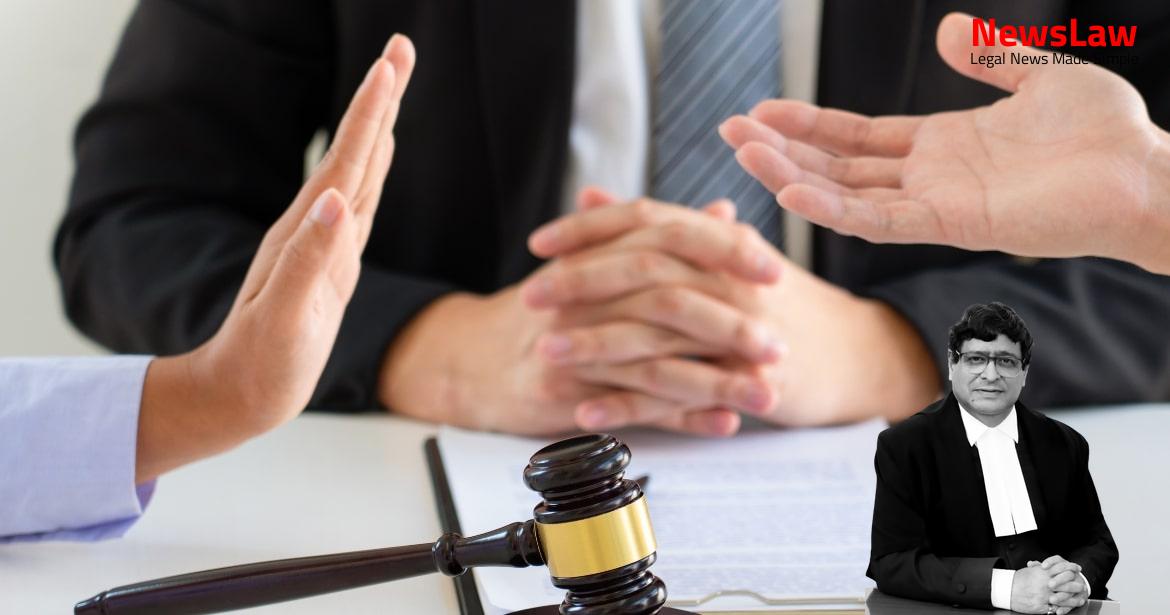The Supreme Court of India recently analyzed a legal case involving Muthu and Kesavan. The case delves into a disputed quarrel that resulted in unfortunate events leading to legal implications. Stay tuned to explore the detailed legal analysis provided by the apex court in this intriguing case.
Facts
- The appellant, along with accused nos. 2 to 6, questioned PW-4 for not paying electricity charges, leading to a quarrel.
- The appellant, along with accused no. 2, brought billhooks during the altercation.
- Eye-witnesses PW-1, PW-2, PW-3, PW-4, PW-5, and PW-6 supported the prosecution’s case against the appellant.
- The Trial Court did not believe in the theory of extra-judicial confession but convicted the appellant based on eyewitness testimonies.
- The appellant, accused no. 1, was convicted under sections 294(b) and 302 of the IPC.
- The altercation resulted in the appellant and co-accused attacking the deceased with a billhook, leading to his death.
- The deceased, PW-1, and PW-5 tried to intervene during the fight.
- There was an understanding between the appellant and PW-4 regarding the payment of electricity charges.
- The appellant and co-accused allegedly made an extra-judicial confession before the Village Administrative Officer.
- The appellant and PW-4 are the sons of accused nos. 2 and 3, Kaari and Mandiammal, respectively.
- Accused no.2, Kaari was convicted under Section 294(b) and 324 of the IPC.
- The Trial Court convicted the appellant for offences under Sections 294(b) and 302 of the IPC.
- The offence committed by the appellant may be punishable under part II of Section 304 of the IPC.
- Accused nos. 3 to 6 were acquitted by the Trial Court.
- PW-1 Kalidoss appealed against the acquittal of accused no.2 for Section 302 offence and of the other accused.
- The High Court upheld the acquittals and dismissed all the appeals.
Also Read: Judgment on Interim Stay of Bail Orders: The Case of Liberty vs. Judicial Discretion
Arguments
- The learned senior counsel submitted that the appellant is covered by the exceptions under Section 300 of the IPC.
- Motive has not been established.
- All factual aspects have not been brought on record by the prosecution.
- Serious controversy regarding the time of the incident, creating doubt.
- Prosecution has not proved the guilt of the appellant beyond reasonable doubt.
- Dispute was with PW-4 Kesavan, deceased and PW-1 intervened.
- Appellant had no intention to kill the deceased Muthu.
- Appellant had no motive to kill Muthu.
- Appellant’s intention to kill Muthu has not been established.
- Injuries were not sufficient by themselves to cause death in the ordinary course.
- Counsel relied on the decisions of the court in Chilamakur Nagireddy and Ors. v. State of Andhra Pradesh and Virsa Singh v. State of Punjab.
- The offense occurred due to a sudden fight in the heat of passion, without pre-meditation.
- The maximum offense proved against the appellant could be punishable under Part II of Section 304 of the IPC.
- Counsel for the respondent supported the appellant’s conviction.
Also Read: Zaveri & Co. Pvt. Ltd. vs. ACIL: Legal Precedent on Guarantor Liability
Analysis
- The appellant questioned PW-4 about unpaid electricity bill which led to a quarrel.
- Deceased intervened in the quarrel among family members of the appellant.
- After hearing the noise, the deceased along with PW-1 tried to intervene.
- Minor discrepancies in the eyewitnesses’ testimonies about the incident’s exact time do not discredit their credibility.
- No significant contradictions or omissions were found in the cross-examination of witnesses.
- Appellant’s intent to cause harm is indicated by bringing a weapon from home during the quarrel.
- Both the appellant and accused no.2 brought billhooks during the altercation
- Witnesses consistently state the appellant assaulted the deceased with a billhook on his head.
- Appellant started the dispute by questioning PW-4 on non-payment of electricity bill.
- Deceased had brain and chest injuries according to post-mortem notes.
- Medical opinion attributes death to shock and bleeding from chest and head injuries.
- Offence under Section 302 of IPC was proven beyond reasonable doubt.
- No sudden provocation due to any act on the part of the deceased.
Also Read: Legal Battle: Maharashtra Electricity Regulatory Commission vs. Steel Industry
Decision
- The appellant failed to provide evidence to support their appeal
- The court found that the lower court’s decision was based on solid grounds
- The appeal was dismissed
Case Title: SHANMUGASEKAR Vs. THE STATE OF TAMIL NADU (2024 INSC 504)
Case Number: Crl.A. No.-000204-000204 – 2024



